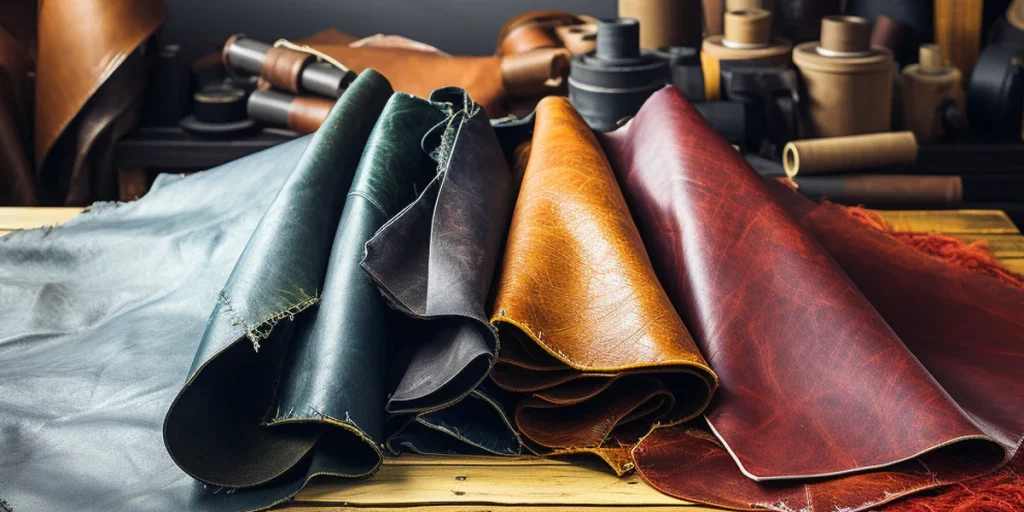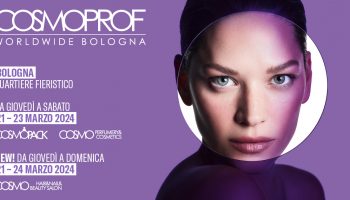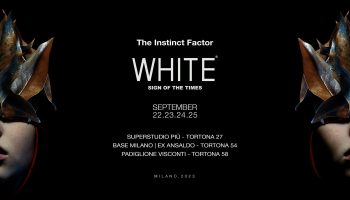Genuine leather is one of the most popular and timeless materials in the fashion industry. However, with the increasing awareness of environmental sustainability and animal welfare, sustainable leather such as vegan leather has emerged. Indonesia, especially Garut, one of the world’s largest leather producers, is playing an important role in shifting this paradigm. This not only creates a positive impact locally but also in global markets such as Italy.
Vegan leather is a material made from agricultural waste products and sustainable biomaterials. It is an alternative to animal skins such as cattle and is made without the use of any animal products. In addition, vegan leather is environmentally friendly, biodegradable, and animal cruelty-free. Some of the most common materials used to produce vegan leather are cactus, kombucha, mushrooms, pineapple, bacterial cellulose and so on. In an effort to revolutionize the fashion industry, two innovative entities that have emerged as pioneers in the field of vegan leather production are Bell Society and Mycotech Lab.
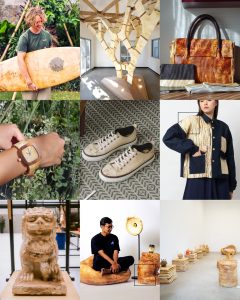
Mycotech Lab is a start-up that makes environmentally friendly composite materials and leather. This is because the materials made are recycled products of agricultural waste containing cellulose such as wood powder, empty bunches, palm oil, sugarcane fiber pulp, and so on. The products also use natural adhesives from fungal mycelium and use natural dyes extracted from roots, leaves and food waste. Currently, Mycotech has 3 types of products, namely Biobo (Bio Binderless Board) as a decorative panel for interior wall elements, mylea as a leather material that is made into shoes, wallets, bags, clocks, hands, and other fashionable products and MYCL Composite suitable as a material for furniture, decorative objects, and installations.
Meanwhile, Bell Society (PT. Kurva Leng Khatulistiwa) also develops and produces biomaterial leather by converting coffee waste, husks, and coffee grounds. There are 3 types of vegan leather produced by Bell Society, namely M-Tex made from coffee husk waste, C-Foam made from coffee silverskin, and C-Flex made from used coffee grounds. Bell Society sources coffee and organic waste from cafes, restaurants, and directly from coffee farmer cooperatives. In addition, all types of vegan leather produced are processed into wallets, card holders, shoes, bags, and so on.
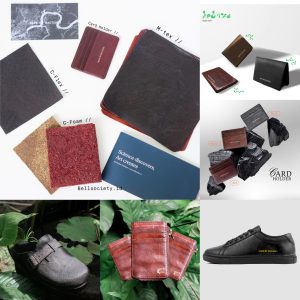
The existence of Bell Society and Mycotech Lab represents a positive evolution in the leather industry, especially vegan leather. Indonesia, with its heritage as a leading leather producer, is at the forefront of steering the industry towards more environmentally friendly practices. Italy, known as one of the countries synonymous with leather fashion products, is expected to have an intense collaboration, providing a great opportunity to bring sustainable leather to the global luxury fashion world.
By continuing to innovate and commit to sustainability, Indonesia can become a model for the sustainable leather industry in the future and position Italy as a beacon of ethical and progressive fashion.
For more information, you can visit www.itpcmilan.it
Source
https://www.webmd.com/a-to-z-guides/what-to-know-about-vegan-leather
Mycotech Startup Peduli Lingkungan, Menyulap Limbah Petanian Menjadi Bahan Bangunan dengan Miselium Jamur
https://jabarprov.go.id/berita/kabupaten-garut-wakili-indonesia-di-ajang-industri-mode-dan-desain-kulit-bergengsi-di-ita-6910
https://dailysocial.id/post/angin-ninja-jica-2022-akselerator
https://bellsociety.id/
https://mycl.bio/
https://www.webmd.com/a-to-z-guides/what-to-know-about-vegan-leather
Mycotech: The Indonesian Startup Making Mushroom Leather Inspired By Tempeh

